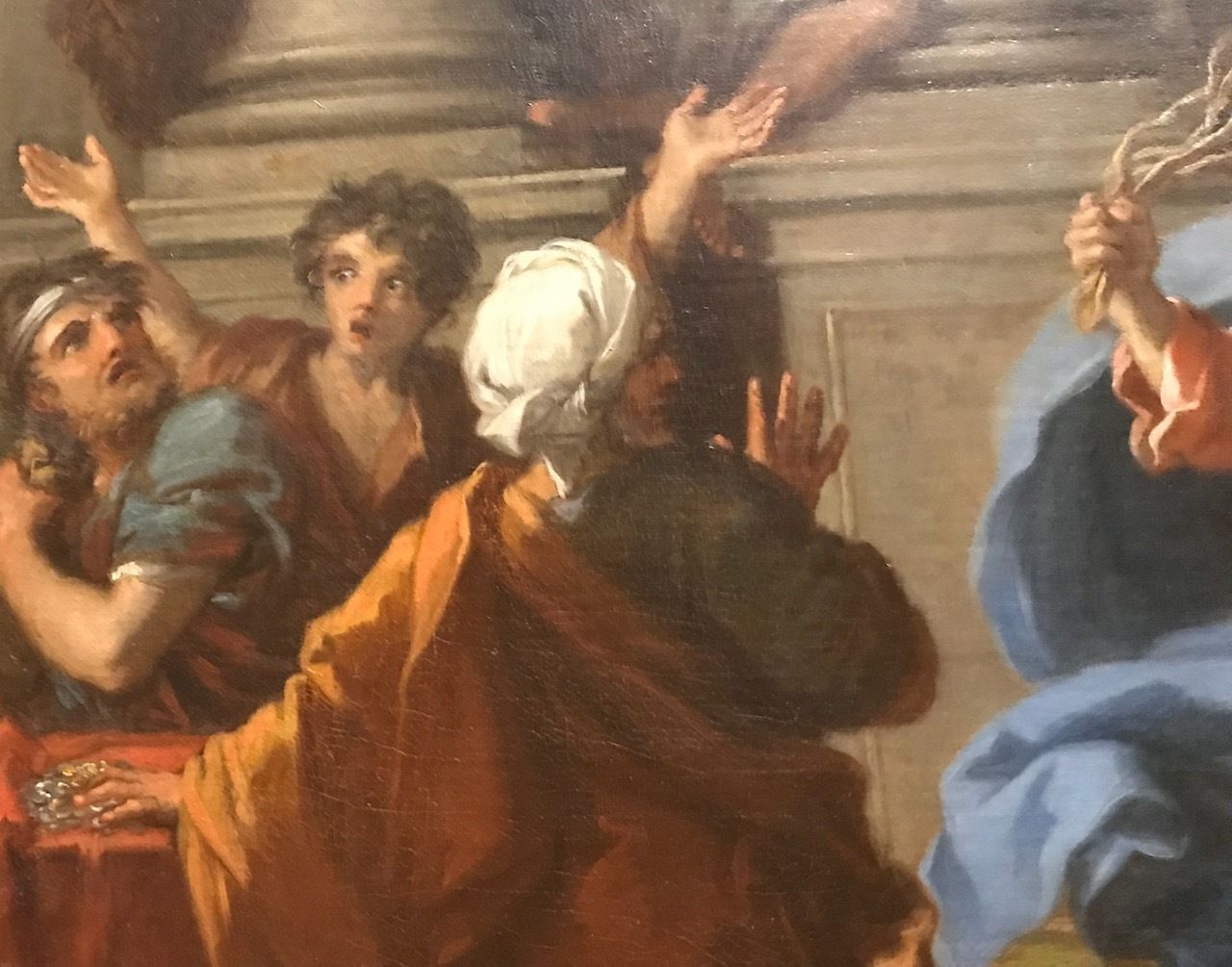- This is the Day
- Posts
- February 8
February 8

Detail of “The Cleansing of the Temple” by Giuseppe Passeri, 1712. Walters Art Museum, Baltimore, 2018.
Today is one of two days (the other is February 15) that Buddhists may celebrate Parinirvana Day, when Buddha transitioned from his physical existence sometime in the 5th century, BCE.
Today also marks the passage of the Dawes Act, in 1887, which imposed private land ownership on Native Americans, who had very different notions of both land and ownership. The Dawes Act is a good example of the implicit belief that every square inch of the Earth—and every human being—must be productive for the religion of capitalism.
Today is also the birthday, in 1847, of Hugh Price Hughes, a Welsh Wesleyan Methodist pastor who was an early voice for faith-based political organizing. He was an outspoken advocate for nonconformist Christians in England, and people sometimes referred to him as “Judgment Day in Trousers.” His support for British imperialism undercut his liberal politics, but he had a powerful influence on socially-conscious Christianity during the Victorian era. .
Reflection:
Hughes wrote:
“Politics is the only serious subject that men think themselves qualified to act upon without any previous education or instruction whatsoever. If it happened to be astronomy, or botany, or medicine, or law, he would never be allowed to work in any of these arts, or to take a decisive part in the history of any one of these sciences without having, at least, acquired, the ABC of it; but the awful fact of politics is that we do not take the trouble seriously to understand the political situation.”
I feel much the same way about religion that Hughes felt about politics! Sometimes it seems, thanks to the internet, everyone feels like they are an expert in everything. And yet, if we long for the kind of socially-engaged faith Hughes talked about, then politics and religion are places where we want more people involved, not less.
He also said,
“The minister’s job is not to coddle the saints but to collar the sinners.”
This quote has often been conflated with a quotation about the job of a journalist: “Comfort the afflicted and afflict the comfortable.”
While I’m not one for hellfire and brimstone sermons, and I don’t think anyone has ever referred to me as “Judgment Day in trousers,” good preaching on liberation theology requires a sense of urgency, not complacency. We need to name racism and economic inequality as sins. The forces of injustice are not natural processes—they are manufactured.
Prayer: God, we accept many beliefs, like private property, as natural laws instead of inventions. Help us to see outside of the fictions we wrap our world in so that we may also see solutions. Amen.